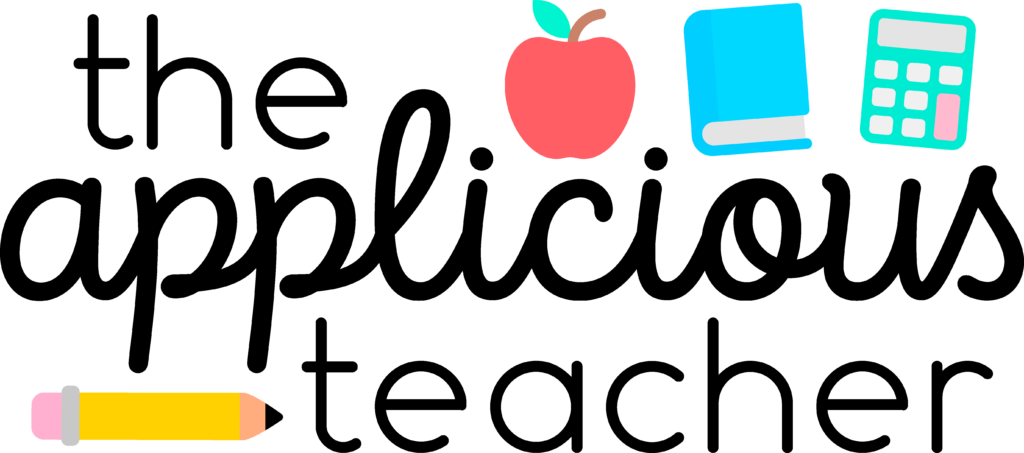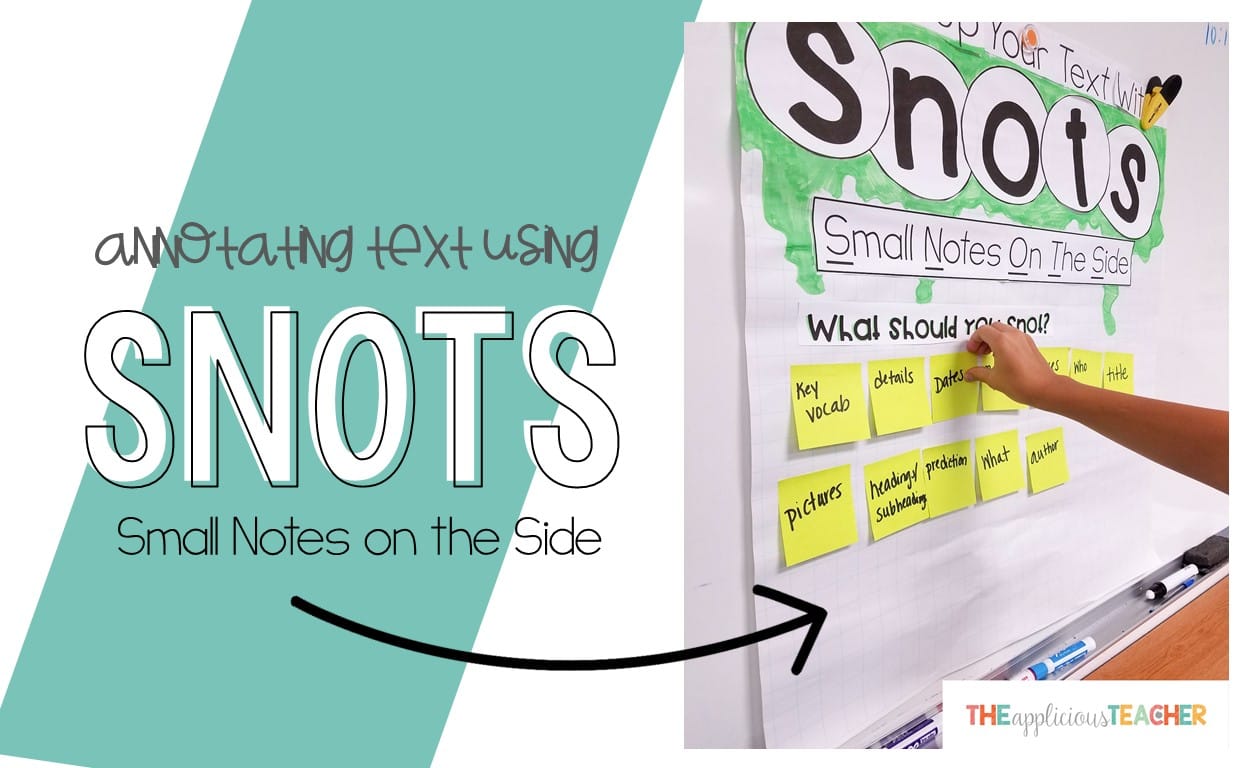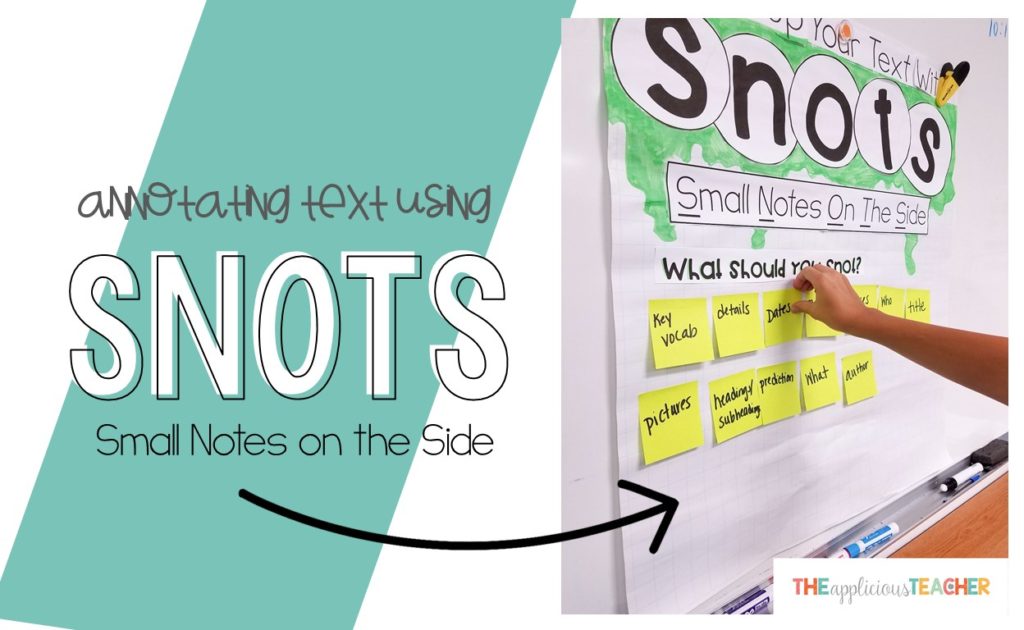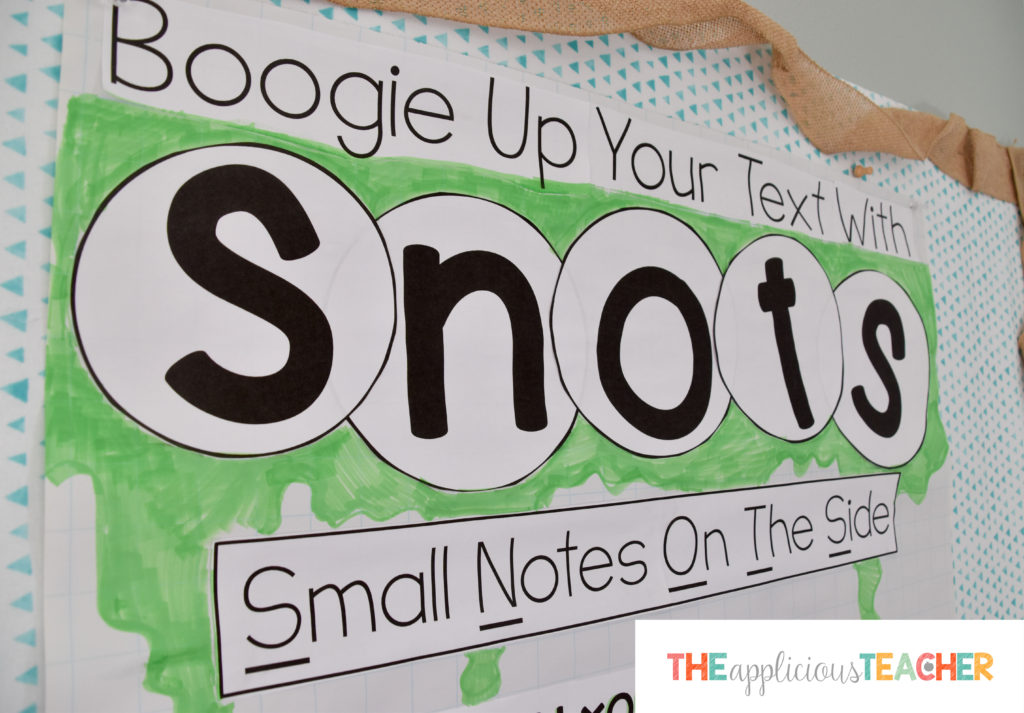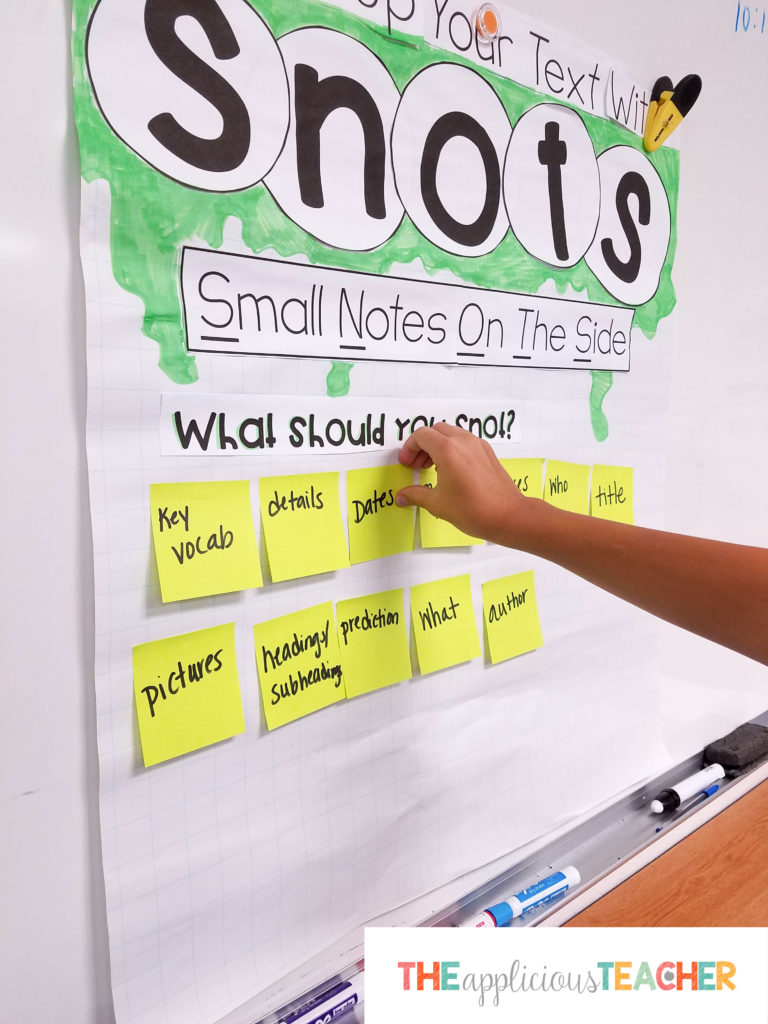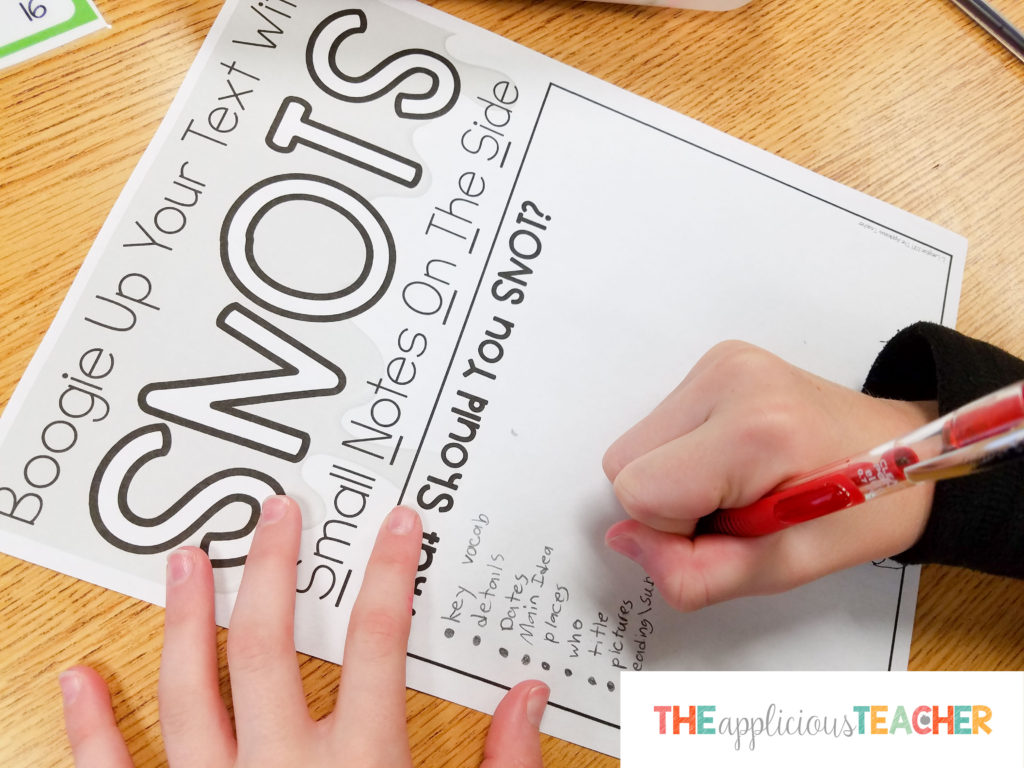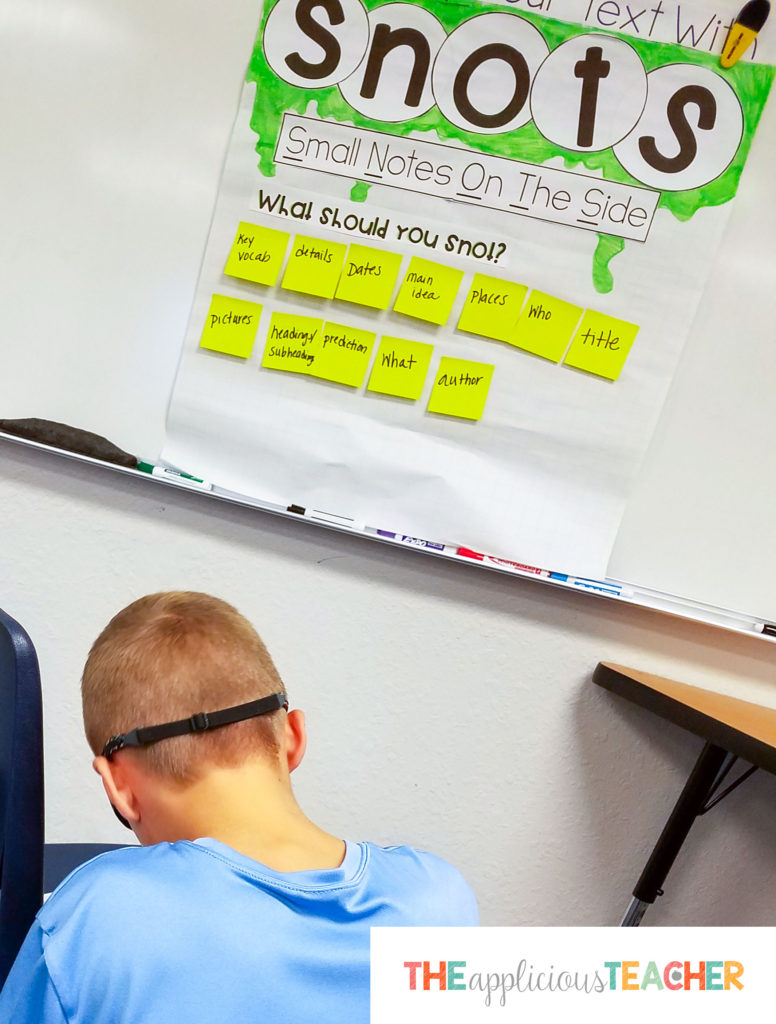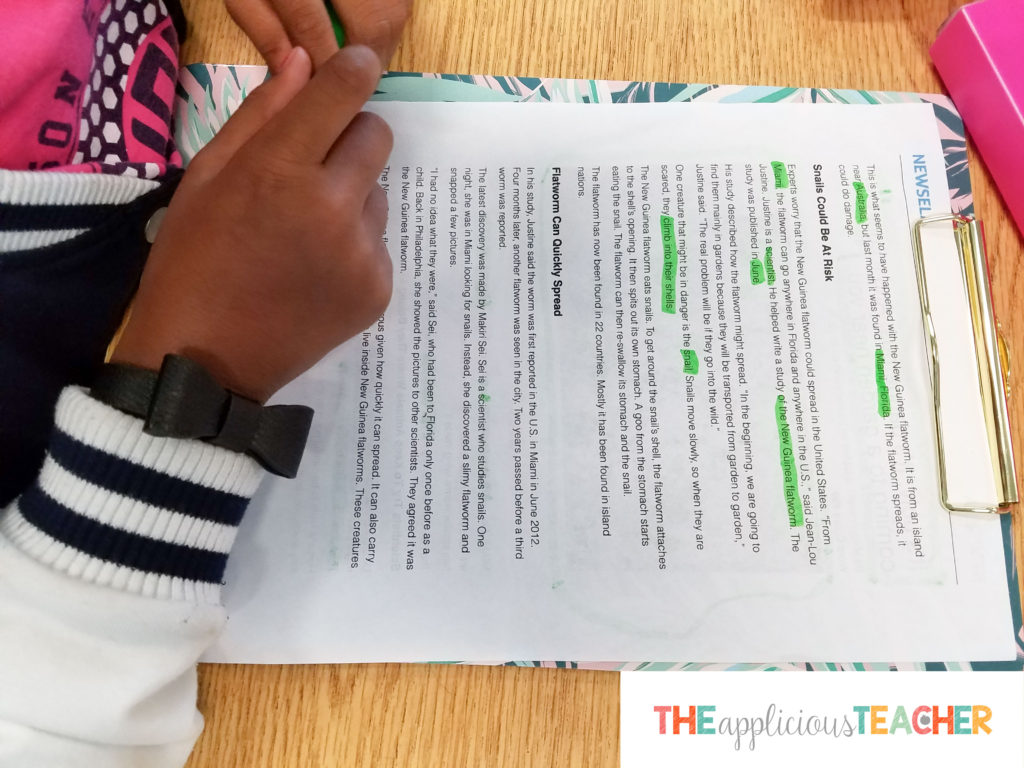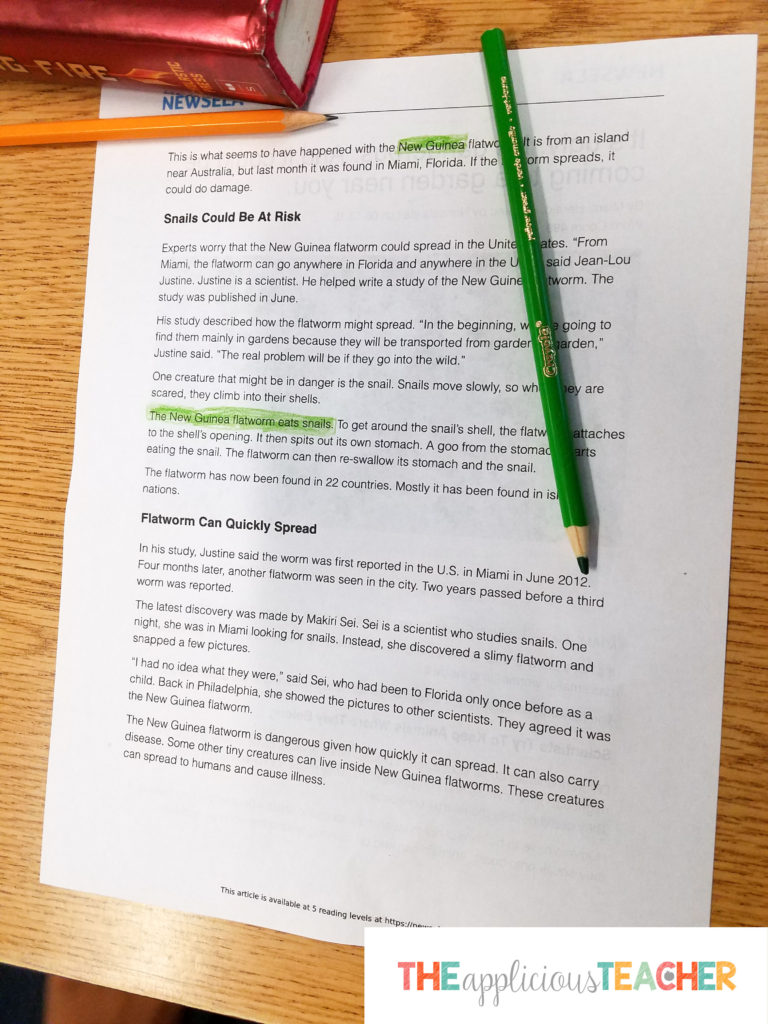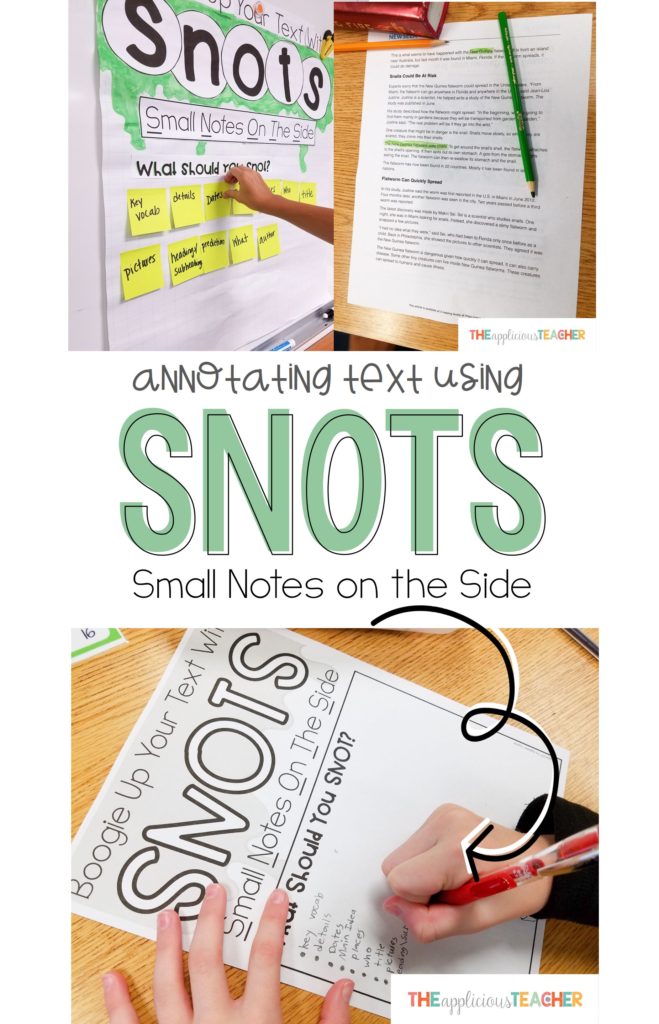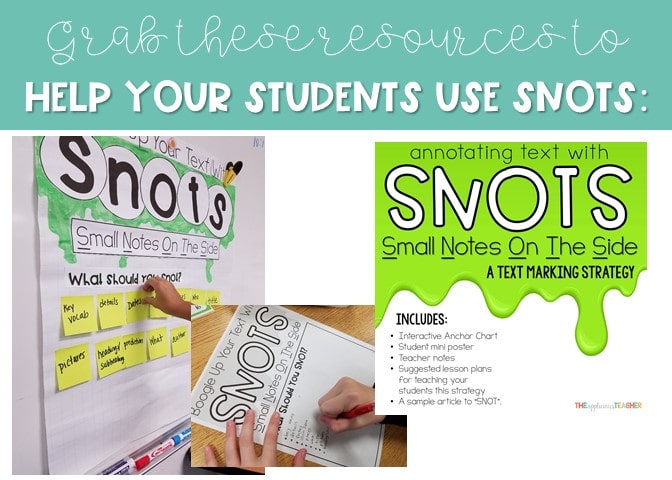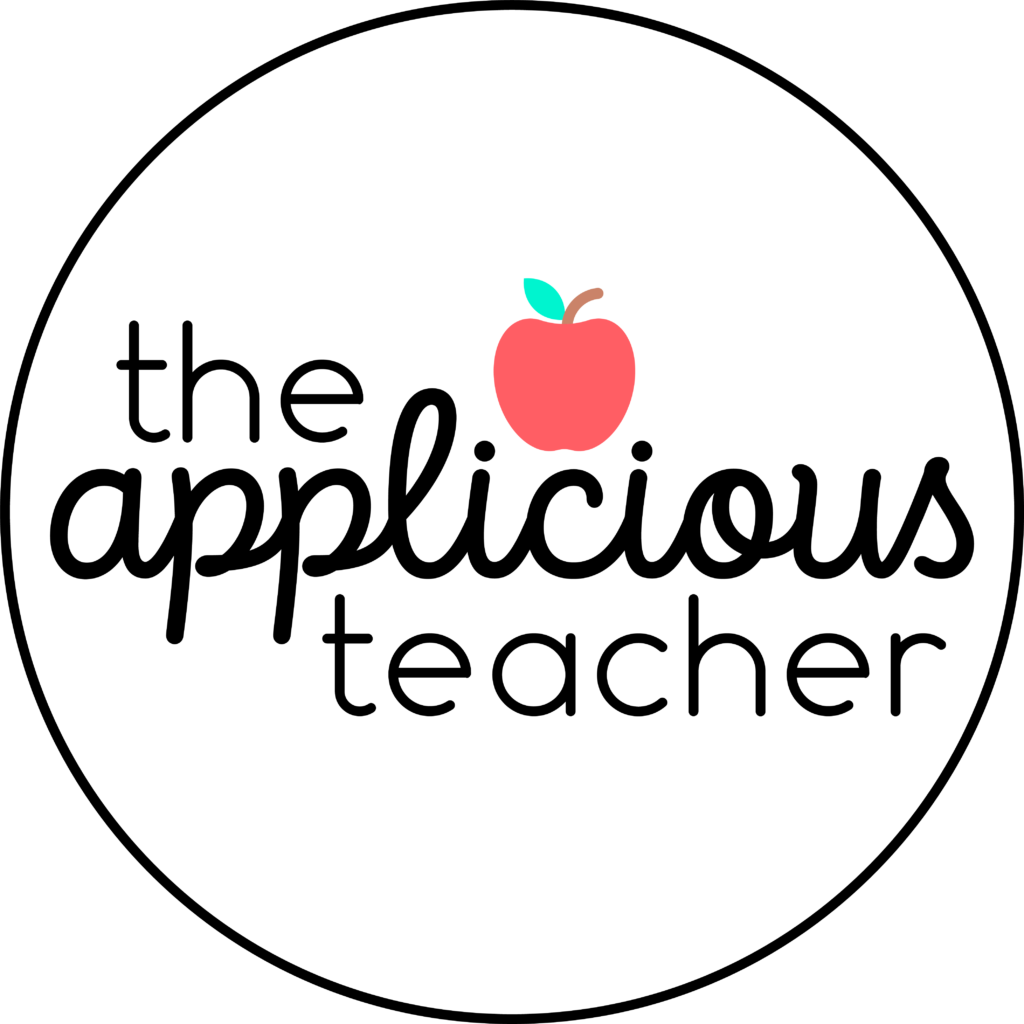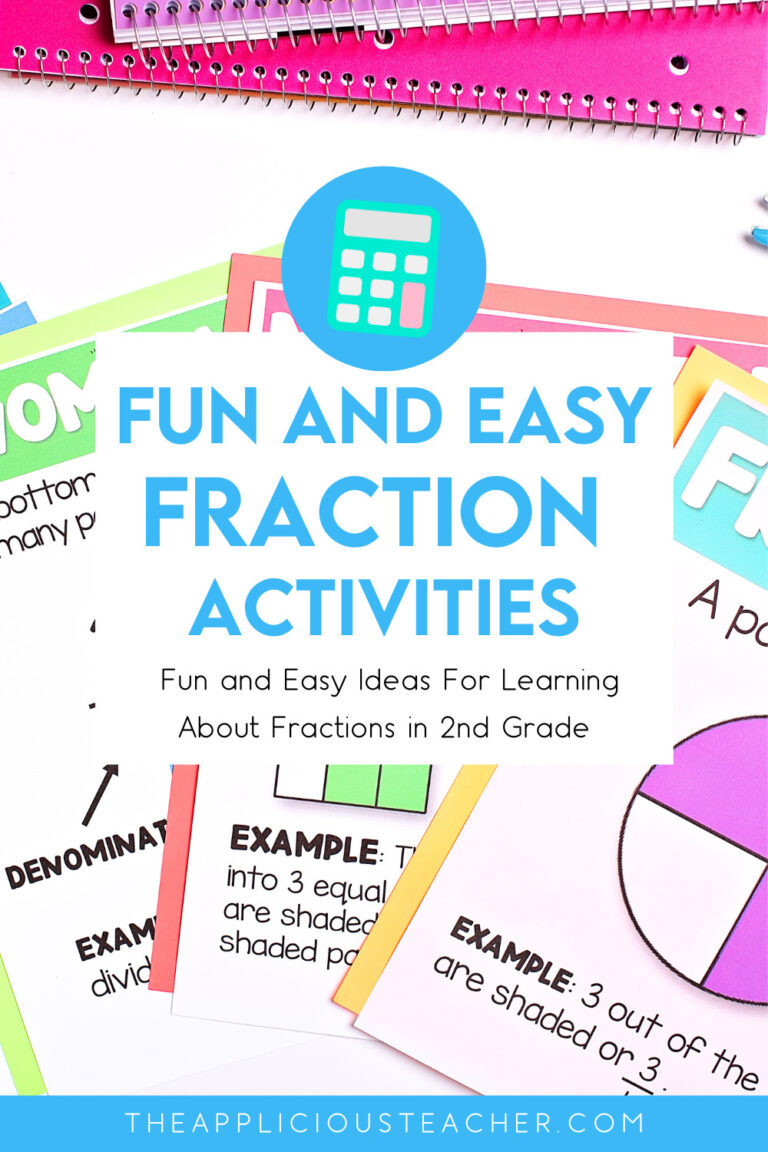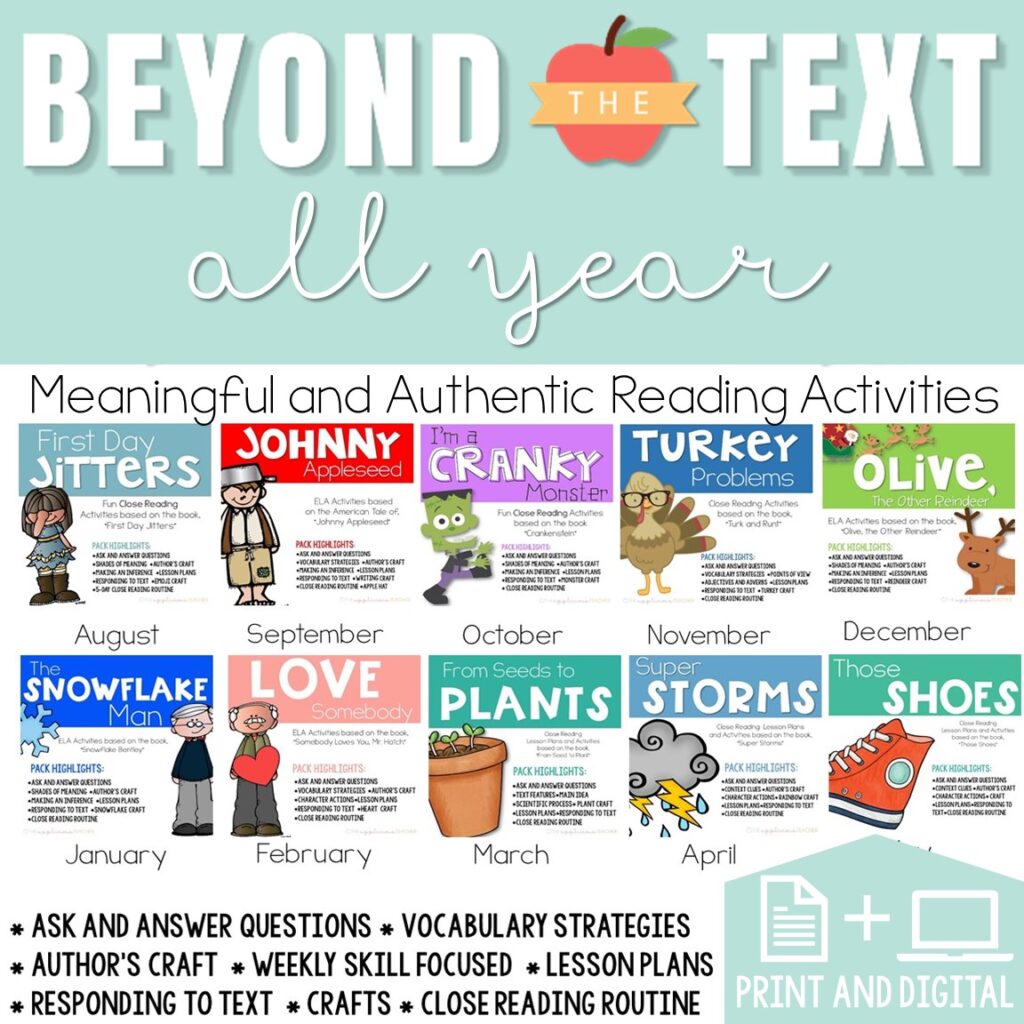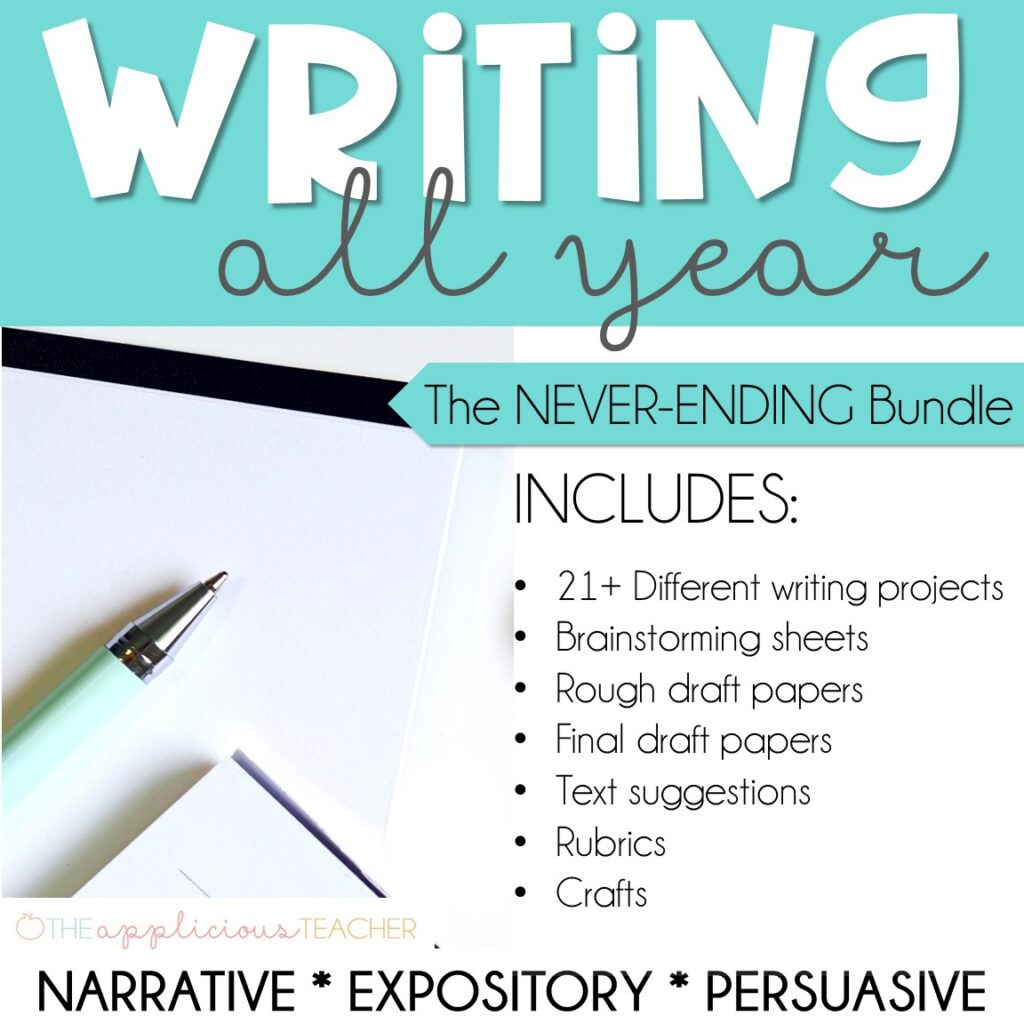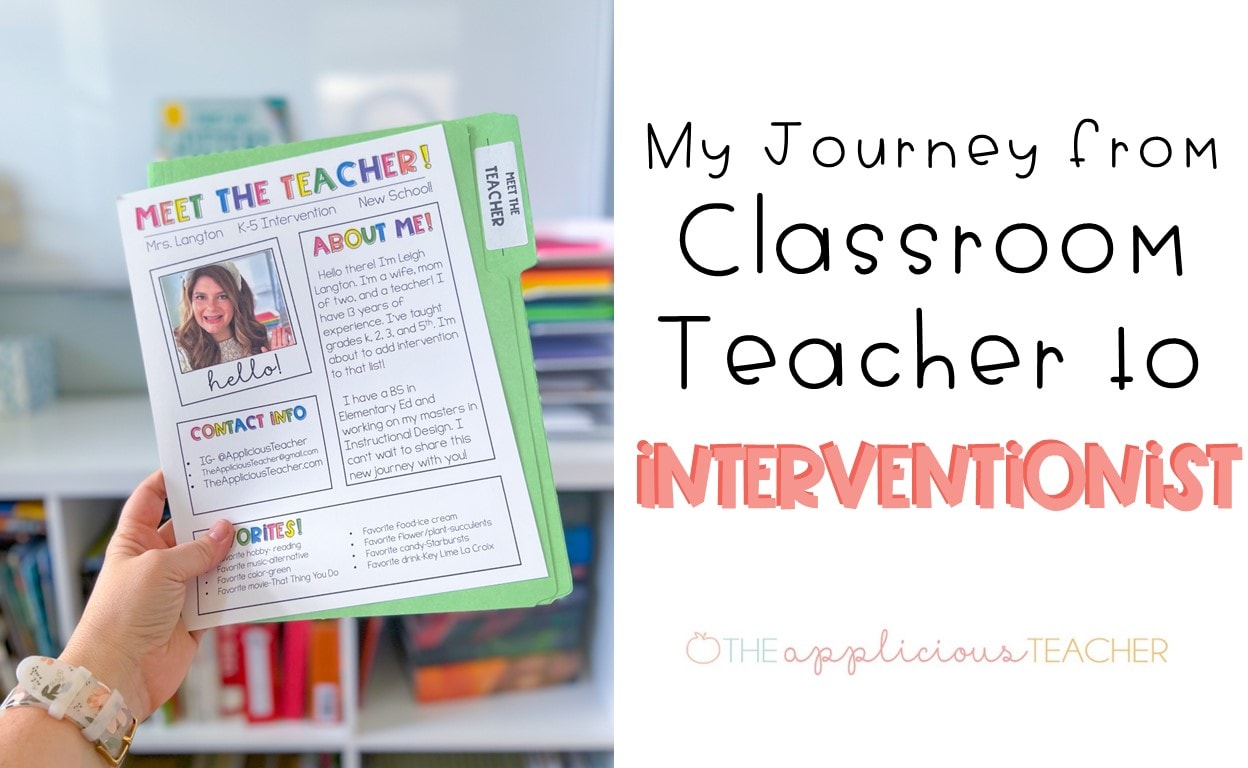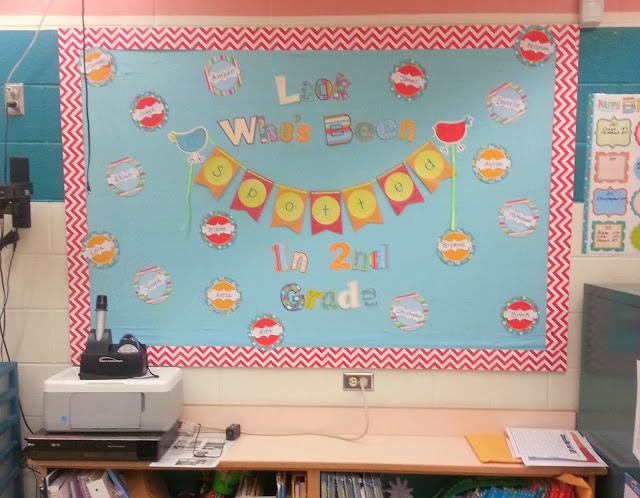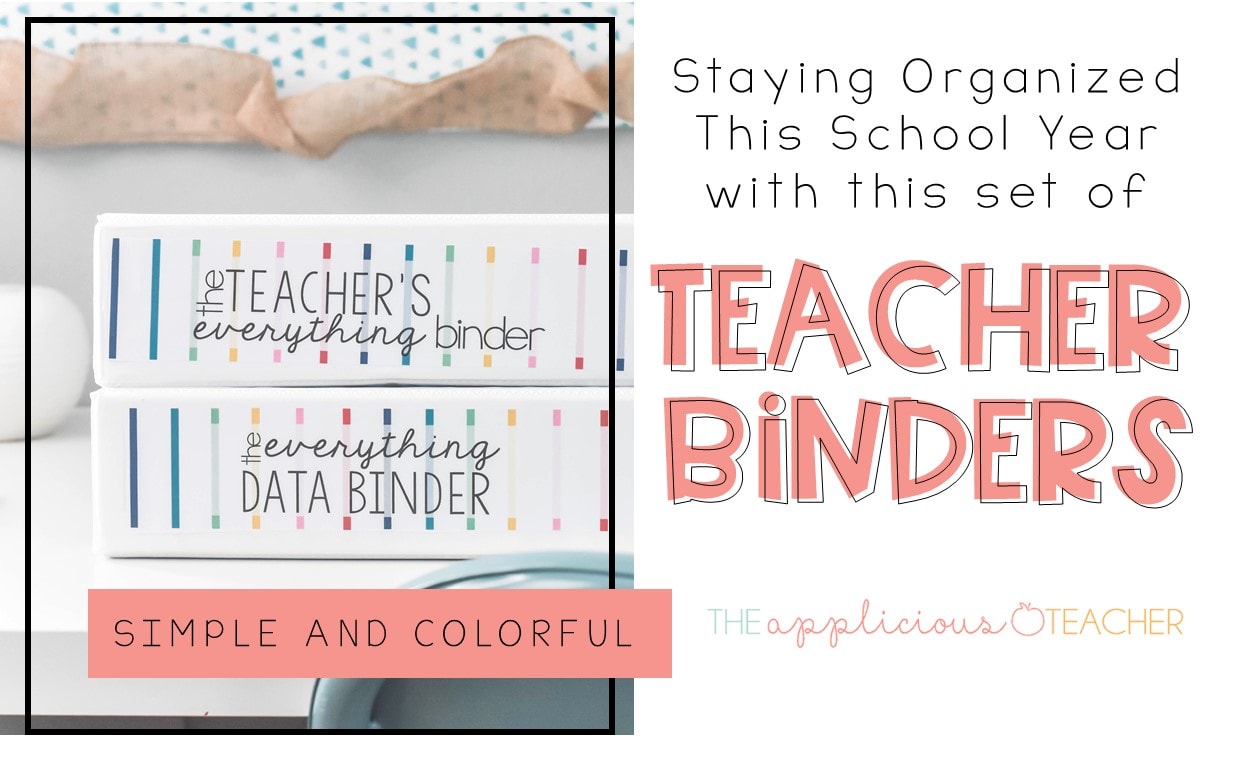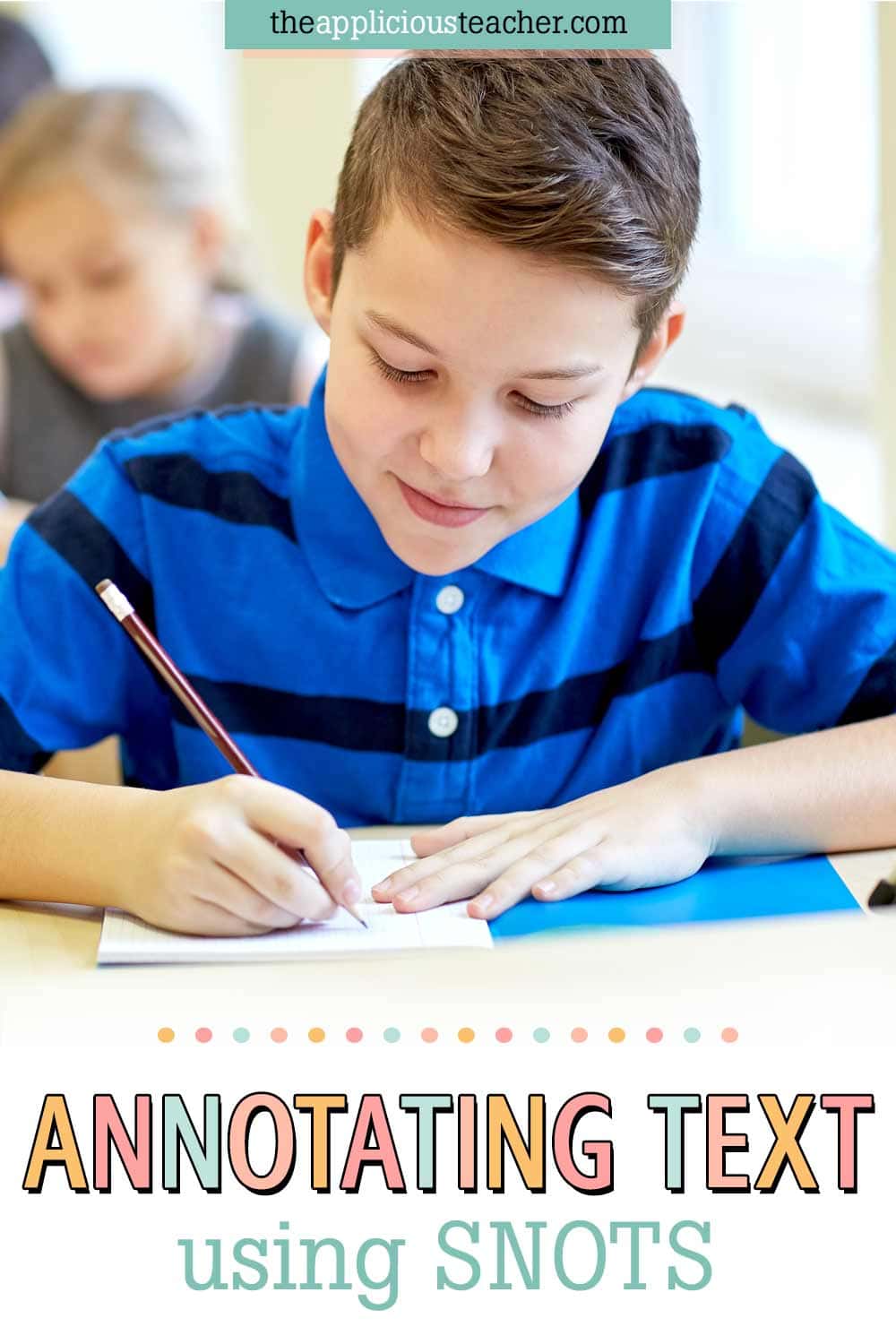
Getting fifth graders excited about reading any text is hard enough, let alone getting them to annotate as they read, so when I started planning for our summarizing lessons, I knew I had to teach my students how to annotate text using SNOTS.
Setting the Stage for SNOTS
Before we even started any text markings, we discussed the idea of SNOTS and that it stood for: Small Notes on the Side. Of course, I pulled out this handy-dandy interactive anchor chart to help start our conversations on what “Small Notes on the Side” truly means.
We first discussed why we would want to “snot” on our text. Their response? “Because we’re sick?” (Gotta love 5th graders!) My response? Nope… we want to make note of important words and features throughout the text as well as share our thoughts and feelings. Then, I had students share what they thought would be classified as “important” to know items from any given text. As they shared, I wrote their item on a sticky note and added it to our chart. Hindsight: I would have had them write it and place it up on the chart. But I was in a rush… so…yeah… Learn from my mistake! Have the kiddos write and place!
Personal SNOTS Poster
Then, I had students create their own personal SNOTS poster that they could keep in their reading folders. This way students could reference it whenever they were reading/text marking!
Some of my 5th graders copied right from the board, while others came up with a few of their own items they could SNOTS.
SNOTing on the Paper
Now that we knew and understood what needed to be snotted, we were ready to put practice into action! So, the next day, I pulled out a unique article about an invasive worm that’s taking over South Florida that I found on ReadWorks.org. I also had students grab green colored pencils so we’d be ready to SNOTS all over our paper!
Before reading, I guided the students through snotting the title and making a prediction. Students also pointed out the picture, so they circled that. We also ran through and numbered the paragraphs so that we could easily reference back to a paragraph if we needed too.
From there, we read the text together, making sure to highlight key information, ideas, dates, and places.
Eventually, I allowed students to start SNOTTING the text on their own. To do this, I’d have them read a paragraph or section on their own, then we’d review as a class what types of things they snotted. This was a great way to see who was starting to understand SNOTS and who still struggled with key information. If we forgot what we could SNOT, students pulled out their reference poster.
Using SNOTS for Summarizing
The following day we were ready to start summarizing the text. To complete this task, I reviewed that a good summary should include the “Who, What, Where, When, and Why/How” of a text. We also discussed the 20-word summary rule. You can read more about that here!
From there, we teamed up into groups of 2-3 students. The students reread the article with their partners, then used the SNOTS to help form a 20 word summary. MAGIC people! It was MAGIC! So many of the students remembered they SNOTTED dates and places and were able t
o pull that information quickly from their text! As students worked, I walked around and spot checked their progress. If they were struggling, we reviewed their SNOTS and discussed how they could incorporate that information into their summaries.
So that was just ONE way we used SNOTS in our classroom. The great thing was after we SNOTTED the first time, students were excited to “snot” all over their papers week after week. How many kids do you know that actually WANT to text mark? I don’t know many… LOL! So, I took that as a success!
Like what you see? You can grab these resources and so much more here in my TeachersPayTeachers store! This pack includes:
- lesson plans
- SNOTS Interactive Anchor Chart
- Student SNOTS poster
- Samples of SNOTTED articles
- Sample article to SNOT
Check it out!
Sign up to snag these!

Receive all these classroom management tools right to your inbox!
Success! Now check your email to confirm your subscription.
